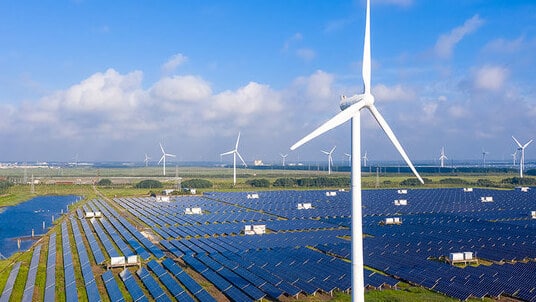According to the IEA, investments in clean energy on a global scale are projected to surpass $1.7 trillion in 2023.
As the global community intensifies its efforts to combat climate change, investment in clean energy is experiencing a remarkable surge, with expectations that it will exceed $1.7 trillion in 2023, according to the International Energy Agency (IEA).
In its latest report, the IEA stated that the worldwide energy sector is projected to witness investments of around $2.8 trillion this year, with approximately 60.7 percent of that allocated to clean technologies.
As concerns about energy security and affordability escalate amidst the ongoing global energy crisis, expenditure on clean energy technologies is predicted to outpace investment in fossil fuels, signaling a significant shift in the market.
Clean energy encompasses a range of technologies, including renewables, electric vehicles, nuclear power, low-emission fuels, energy efficiency improvements, and heat pumps.
The report highlights that the remaining portion of global energy investments, slightly over $1 trillion, will be directed towards coal, gas, and oil.
“Clean energy is moving fast — faster than many people realize. This is clear in the investment trends, where clean technologies are pulling away from fossil fuels,” said Fatih Birol, Executive Director of the IEA.
He further emphasized, “For every dollar invested in fossil fuels, about $1.7 is now going into clean energy. Five years ago, this ratio was one-to-one.”
According to the report, spending on solar power is expected to exceed $1 billion per day or reach $382 billion for the year 2023. In contrast, investment in oil production is projected to amount to $371 billion.
Between 2021 and 2023, annual investments in clean energy are estimated to increase by 24 percent, driven by the growth of renewables and the electric vehicle market. In comparison, investments in fossil fuels are expected to rise by 15 percent during the same period.
The report also highlights that more than 90 percent of the projected increase in clean energy investments originates from developed nations and China. This raises concerns about potential energy disparities if other regions fail to accelerate their transitions to renewable energy sources.
The IEA attributes the heightened investments in clean energy to rapid economic expansion and volatile fossil fuel prices, which have raised concerns about energy security, particularly in the aftermath of the Ukraine crisis.
Other factors contributing to the surge in clean energy investments include substantial policy support through initiatives implemented in Europe, Japan, China, the United States, and other regions. Additionally, the US Inflation Reduction Act has played a significant role in stimulating investment in clean energy.
The growing momentum in clean energy investments underscores the global commitment to combat climate change and transition towards a more sustainable and decarbonized future. As governments, businesses, and individuals recognize the urgency of addressing climate issues, the shift towards clean energy is gaining momentum, providing hope for a greener and more resilient world.





